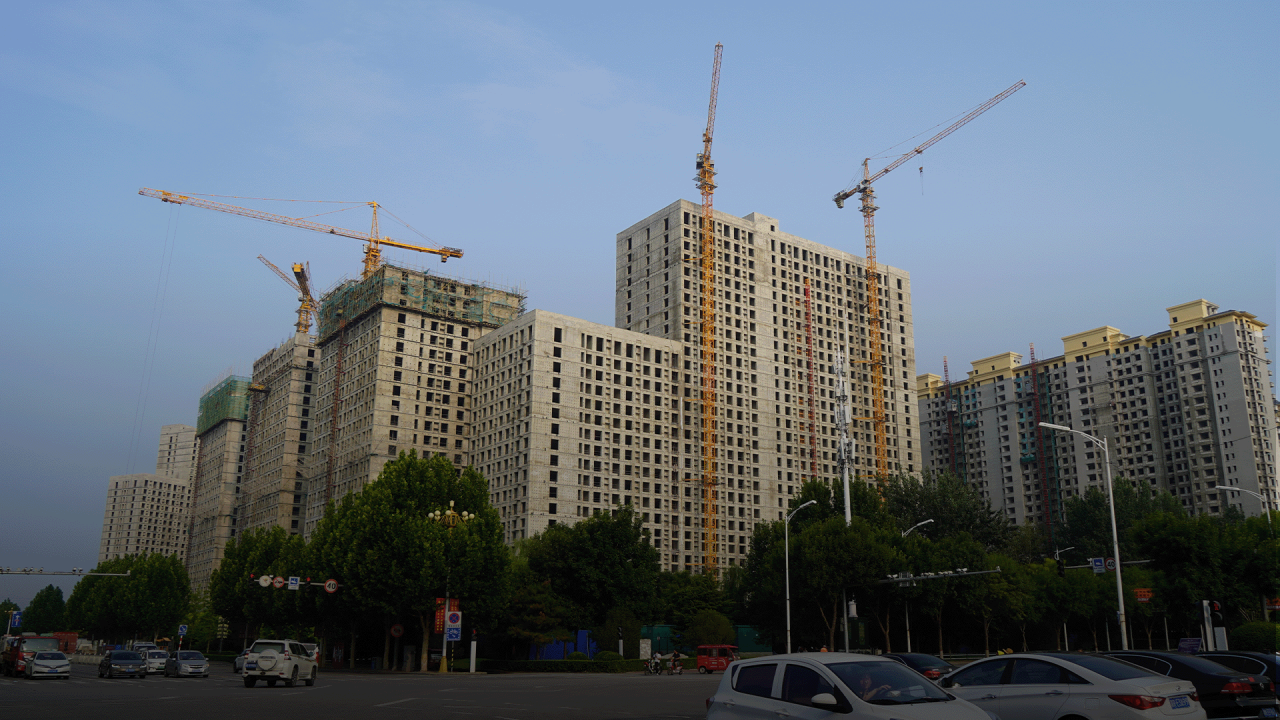
07:21
Growing anger over China’s unfinished ‘rotten tail’ buildings: ‘We really need this home’

The debt crisis in China’s property industry is spiralling deeper into the abyss, as interim results from the country’s biggest developers showed most of them struggling to generate enough cash to service their loans amid a slowing economy.
Private property enterprises, left to their own devices without the financial backing of the state, are bearing the brunt. Their average net profit plunged by 188 per cent in the first six months of 2022, according to a report by Singapore’s United Overseas Bank (UOB) that tracks 32 listed developers.
State-owned developers fared better, with their profit dropping by 27 per cent compared with a year ago.
The cash crunch was seen across the board. The total cash on hand shrank by 13.8 per cent among the 32 developers, hurting their ability to service their debt, UOB said. CR Land, a unit of one of China’s largest state-owned conglomerates, China Resources Group, was the only developer to report an increase in cash.
“It is a tough overall situation right now. The developers have much less cash to pay their debt, and are unable to get financing offshore and onshore,” said Raymond Cheng, property analyst at CGS-CIMB Securities.
Without supportive policy changes from central government or a sudden shift in confidence in the property market that leads to sales, more developers are likely to default in the near future, according to Cheng.
The dismal report underscores the challenge facing Chinese President Xi Jinping, as he is poised to take on a historic third term as China’s head of state at the ruling Communist Party’s 20th national congress next month.
China’s US$4 trillion residential property market – with annual transactions seven times larger than the US market – is too big to be allowed to fail, responsible for an estimated 16 per cent of the nation’s economic activity.
Home builders have been struggling to make ends meet ever since the central bank imposed its “three red lines” policy in August 2020 to bar heavily leveraged enterprises from taking on more debt. That severance of loans capital drove many developers, such as China Evergrande Group, Sunac China and Shimao Group into defaults.
China’s property market has not been able to break its sales slump. It has tanked every month since July 2021 amid nationwide lockdowns to curb the spread of Covid-19.
The most recent lockdown in Chengdu is expected to disrupt the business of CR Land, a top three developer in the Sichuan capital in terms of sales.
In attempts to raise finance to pay off their debts, five Chinese residential services companies have launched IPOs this year. They have lost a combined US$264.5 million in market value since listing. China Vanke was the most recent to spin off its property management unit.
Of the 27 Hong Kong-listed Chinese developers, Agile Group Holdings’ earnings per share slumped the most, with a 59 per cent drop year on year, although the group has managed to repay its debts without default.
KWG Group Holdings and China Vanke saw their earnings per share drop more than 40 per cent from a year earlier.
KWG proposed to exchange US$900 million of dollar bonds due this month, becoming the latest developer to ask for extra time to repay debts.
Aggregate borrowing of state-owned developers increased by an annual 8.5 per cent in the first six months of 2022. That of privately owned developers fell 5.3 per cent.
Chinese developers owed as much as U$5 trillion as of the second quarter of 2021, according to Japanese bank Nomura.
The first half of this year saw a lot more bond extension offers but very few approved debt restructuring plans, meaning the deleveraging of China’s property sector is still very slow, according to UOB.
Overall, companies’ liquidity is getting worse, with six developers reporting net gearing ratios of over 100 per cent, four more than in December last year. Private developers saw their average net gearing ratio rise to 93 per cent from 75 per cent in the period.